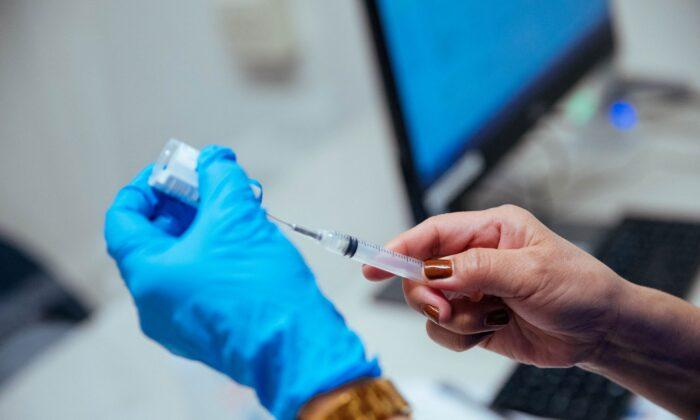Health authorities in Australia have quietly removed Moderna’s paediatric COVID-19 vaccine for children five years and under, with both options offered by the company now no longer available in the country.
The seven conditions include severe primary or secondary immunodeficiency, including those undergoing treatment for cancer or those on immunosuppressive treatments; bone marrow or stem cell transplant or chimeric antigen T-cell (CAR-T) therapy; complex congenital cardiac disease, structural airway anomalies or chronic lung disease, type 1 diabetes mellitus, chronic neurological or neuromuscular conditions or a disability with significant or complex health needs.
“ATAGI does not currently recommend vaccination for children aged 6 months to <5 years who are not in the above risk categories for severe COVID-19. These children have a very low likelihood of severe illness from COVID-19,” the advisory body said.
Moderna Vaccine Only Gave Modest Protection: ATAGI
In justifying its change of advice, the health authority said that there was a very low risk of severe COVID-19 in healthy children aged six months to less than five years.“This age group is one of the least likely age groups to require hospitalisation due to COVID-19. Among the small number who are hospitalised or who die due to COVID-19, underlying medical conditions or immunocompromise are frequently present,” ATAGI said.
They also noted that the age cohort had a relatively low rate of paediatric inflammatory multisystem syndrome (PIMS-TS) following COVID-19 compared to other older children, and this further declined with the Omicron variant compared to ancestral SARS CoV-2 strains.
Further, the health advisory group noted that a clinical trial of 5,500 children aged six months up to five years demonstrated that the Moderna COVID-19 vaccine provided only modest protection against infection, while safety data reported patterns of vaccine-related adverse events.

“Up to one in four children in this age group had a fever following vaccination with Moderna vaccine, with higher rates seen in those with a history of previous COVID-19,” they said.
“As fever in this age group can sometimes result in medical review and/or investigations and occasionally trigger a febrile convulsion, the side effect profile for this vaccination needs to be considered in the risk-benefit discussion.”
Omission of Children’s COVID-19 Vaccine Deaths In Australia Raises Concerns
The changing advice follows concerns in March that Australia’s drug regulator was too slow to update the country’s Database of Adverse Event Notifications (DAEN) despite several deaths being attributed to the vaccine, including two children, aged 7 and 9.The information came to light following a Freedom of Information request by an Australian doctor that found the delayed response from the Therapeutic Goods Administration (TGA).
Senator Gerard Rennick said he would push for independent oversight of the TGA.
“A third independent medical party should examine the evidence as the TGA has a conflict of interest because they approved the vaccines and would therefore be held responsible for the deaths of these children due to poor regulatory oversight,” Rennick told The Epoch Times.

The senator also said he was concerned that the TGA was soft-pedalling the risks with the COVID-19 vaccines, especially around myocarditis and cardiac arrests.
“They are definitely downplaying the risks. They do not have enough information to rule it out given the known link between the vaccines and myocarditis and myocarditis and cardiac arrests,” Rennick said.
The TGA states that they “rigorously assess any COVID-19 vaccine for safety, quality and effectiveness before it can be supplied in Australia.”
Further, in the age cohort of six months to 17, there have been 5,817 adverse events recorded, with 5,689 attributed solely to COVID-19 vaccines. Nine children and adolescents have also reportedly died as a result of an adverse vaccine reaction.




